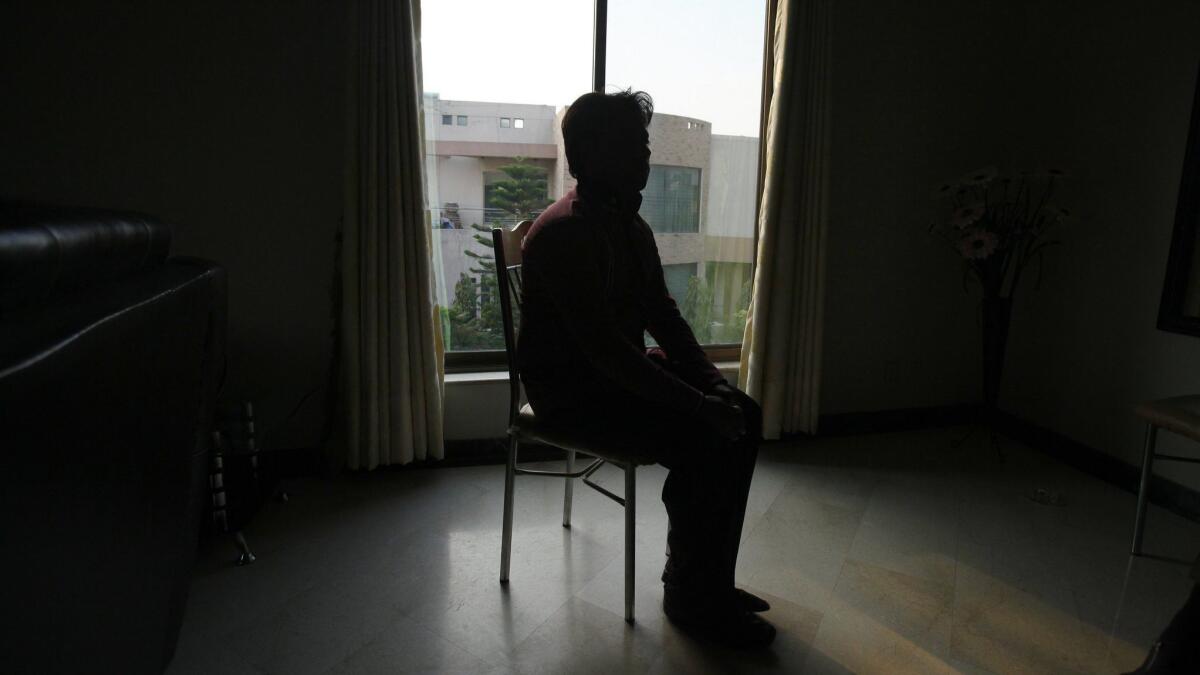Editorial: Blasphemy laws are being repackaged around the world as prohibitions on ‘hate speech.’ Don’t buy it

- Share via
Voters in Ireland last week removed the crime of blasphemy from that country’s constitution, a change that the minister of justice hailed as “another reflection of the strong public support for a modern, liberal constitution.”
Yet despite Ireland’s example, insulting God or religious figures is still a crime in more than 70 countries, in some places punishable by death. (On Wednesday Pakistan’s Supreme Court ordered the release of a Christian woman who had spent eight years on death row after being convicted of insulting the Prophet Muhammad.)
Equally disturbing, blasphemy laws are being repackaged as prohibitions on “hate speech.” Over the years there has been a campaign, led by some Muslim nations, to have the international community condemn “defamation of religion.” This rhetorical sleight of hand allows defenders of blasphemy laws to portray them as protections for persecuted believers rather than the enforcement of a theological orthodoxy.
Blasphemy laws have no place in any society that purports to value freedom of conscience.
On the day before Irish voters chose to remove blasphemy from the constitution, the European Court of Human Rights ruled that an Austrian woman’s rights weren’t violated when she was convicted of “publicly disparaging religious doctrines.” While conducting a seminar on Islam, the woman had suggested that an alleged marriage between Muhammad and a 6-year-old girl amounted to pedophilia.
In upholding the conviction, the European court deferred to the Austrian courts’ conclusion that the woman’s statements “had been capable of arousing justified indignation” and “could only be understood as having been aimed at demonstrating that Muhammad was not worthy of worship.” The judges further concluded that the courts in Austria “carefully balanced the applicant’s right to freedom of expression with the rights of others to have their religious feelings protected, and to have religious peace preserved in Austrian society.”
Enter the Fray: First takes on the news of the minute from L.A. Times Opinion »
Such a ruling would be unimaginable in the United States, given the 1st Amendment. Although historically states have passed laws against blasphemy, rulings by the Supreme Court make it clear that a desire to protect religions from ridicule isn’t a justification for abridging free-speech rights. As the court said in a 1952 case involving the censorship of a “sacrilegious” movie: “It is not the business of government in our nation to suppress real or imagined attacks upon a particular religious doctrine.”
Criminalizing criticism of religion is also difficult to reconcile with guarantees of freedom of expression and freedom of religion contained in such widely embraced documents as the Universal Declaration of Human Rights and the European Union‘s Charter of Fundamental Rights. It also has been demonstrated that blasphemy laws are more likely to be enforced against religious minorities than adherents of a majority faith.
The voters in Ireland were correct. Blasphemy laws have no place in any society that purports to value freedom of conscience.
Follow the Opinion section on Twitter @latimesopinion and Facebook
More to Read
A cure for the common opinion
Get thought-provoking perspectives with our weekly newsletter.
You may occasionally receive promotional content from the Los Angeles Times.






